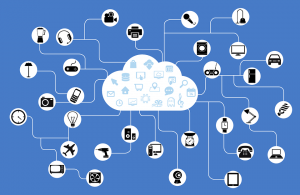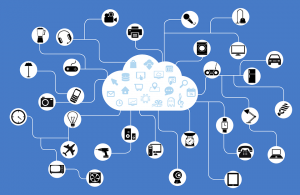
People are now outnumbered by internet-connected devices and every device has data that must be collected, maintained, transmitted, stored and protected. Most of the data goes directly to what is called “the cloud.”
We live in a world where the care and storage of data has become a major responsibility, and one that is continually becoming more robust. Decisions related to data storage are all-consuming for government, businesses and organizations.
Almost all public officials throughout the U.S. struggle with outdated equipment and increased data storage requirements. Cloud infrastructure has become attractive because it allows the flexibility of improved system management and data storage as well as reduced costs. Many CIOs claim that cloud computing is less expensive, safer and more reliable. It does away with the requirements to purchase more servers and other equipment. But, there are many other CIOs who are not ready to store all data in the cloud and these professionals are passionate about their desire to have options. They want to be able to make their own decisions as they factor in the individual needs of the public organization they represent.
 A bill has been introduced in Texas that would require all agencies currently not using State Data Center Services to move to cloud storage to absolve data storage needs. This is similar to what is happening throughout the country. Legislators are making technology decisions that either please or upset CIOs. For instance, there are both supporters and detractors when it comes to moving all data to the cloud and most CIOs are vocal about their feelings. But, cloud storage of data is only an example of the type of decisions that legislative bodies are being asked to approve.
A bill has been introduced in Texas that would require all agencies currently not using State Data Center Services to move to cloud storage to absolve data storage needs. This is similar to what is happening throughout the country. Legislators are making technology decisions that either please or upset CIOs. For instance, there are both supporters and detractors when it comes to moving all data to the cloud and most CIOs are vocal about their feelings. But, cloud storage of data is only an example of the type of decisions that legislative bodies are being asked to approve.
CIOs at the local level of government are not feeling the strain in most states yet because they are free to make their own decisions. However, they closely monitor technology bills introduced at the state level of government. In Texas, the issue of cloud storage is only one of almost 1,000 technology-related bills that have been introduced in the first month of the 85th legislative session in Texas. Because technology touches literally every aspect of governing, technology issues cover healthcare, public safety, education, security, procurement and contracting, human resources, public transactions/interactions, construction and more. It’s hard to believe that lawmakers and their staffs are not reeling as they try to understand the ramifications of each bill.
Technologies, some so new they are just being tested, hold great promise – especially for government. Drone detection technology, for instance, is attractive to prison officials because the delivery of contraband to prison inmates has become a huge problem. Phones, drugs and explosives can easily be delivered to inmates, often completely undetected, by drones. Prison officials need to find ways to curtail this and drone detection technology is a good option for them.
Other new technology that is currently attracting attention is related to public safety, air travel and border security. Devices that detect drugs and explosives are available now that provide for very quick and comprehensive detection. The devices can be located at security checkpoints in airports, positioned in police cars or utilized at border crossings.
Telehealth is exploding with new offerings that offer benefits not available in the past. New technology related to large public construction projects is saving millions of dollars for taxpayers. And, on even small renovation projects, there is software available that alerts project managers about product costs. For instance, a project manager can simply enter plans into the software and get a read on what to expect in the way of costs in a matter of minutes.
New sensor technology is changing almost every aspect of construction in cities. Smart cities, especially those involved with the Internet of Things (IoT) are being used to connect data from all types of disparate sources. And, sensor technology crosses all industry verticals – watch for it throughout every major city in the future.
Technology is changing rapidly – sometimes daily – and it is hard to imagine what types of decisions public officials and legislative bodies will be required to consider over the next few years.
Technology will change the face of government – there is almost no argument about that. Taxpayers and citizens should watch carefully as the changes occur. If it is difficult for CIOs to stay abreast of new technology, it is even more difficult for legislators to cast well informed votes on hundreds of technology-related bills. Surely, it must also be incumbent on citizens to understand the evolving world of technology and the changes that will impact generations to come.
